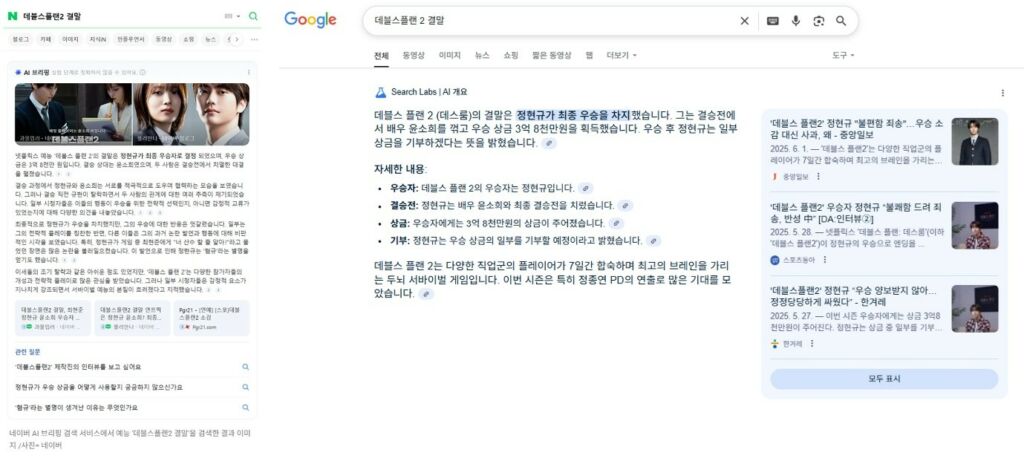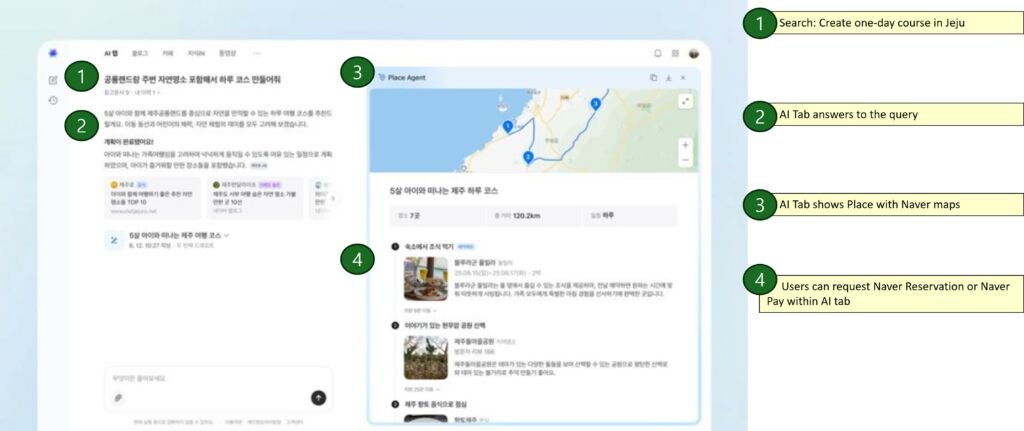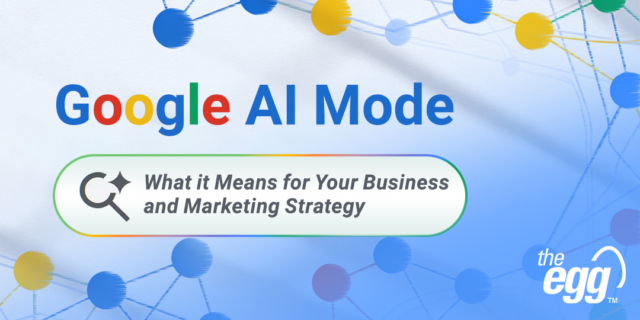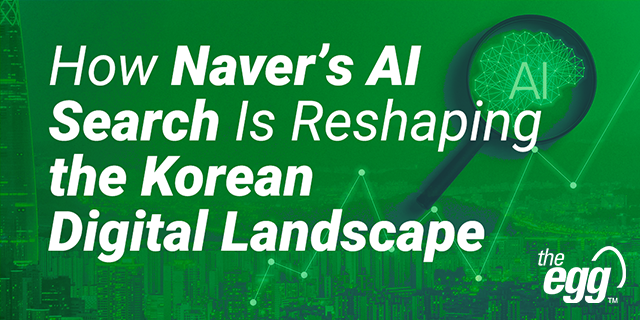How Naver’s AI Search Is Reshaping the Korean Digital Landscape
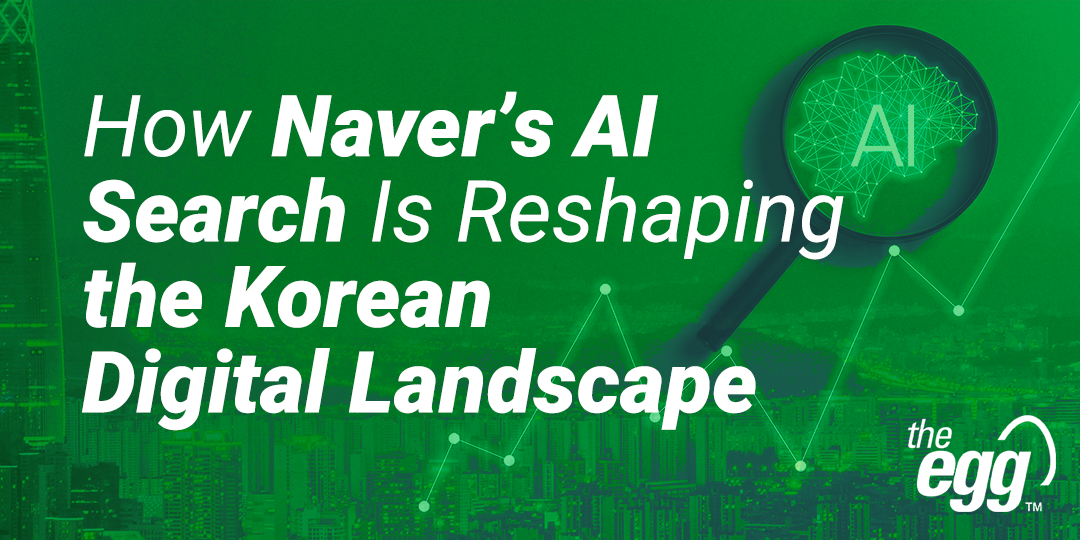
The age of AI-native search is no longer a distant vision, it’s here. While Google and OpenAI capture global headlines, a different kind of AI revolution is unfolding in South Korea – one with implications for brands operating in or targeting Korea.
Naver, the nation’s dominant platform, is not just adapting to the age of AI-native search—it is actively building a vision for the next generation of Korean digital experience. Over the coming year, the company plans to launch its fully integrated AI Tab, a unified agent that combines conversational search with end-to-end actions like reservations, payments, and product discovery.
In parallel, its AI Briefing will expand coverage to at least 20% of all answer-based queries by the end of 2025, up from just 1% today. These tools are part of a broader, deliberate effort to turn Naver from a search engine into a seamless, intent-driven ecosystem for information, action, and commerce—all localized and creator-friendly.
Naver’s AI Briefing
What’s the difference between Google & Naver’s AI-Powered Search
The core difference between Google’s and Naver’s AI strategy lies in their philosophy of content.
Google: Historically committed to a decentralized, open web, Google’s AI Overviews now increasingly provide direct answers by summarizing information from external sites. This positions Google as the primary destination, reducing outbound clicks and treating third-party content as an internal resource to be consumed rather than a destination to be visited. This strategy marks a shift towards building walls to keep users within its environment.
Naver: In contrast to Google’s historical open-web approach, Naver has long operated as a vertically integrated ecosystem, hosting a substantial proportion of Korean web content within its platforms (e.g., Naver Blog, Cafes). Its AI strategy, with features like AI Briefing and the upcoming AI Tab, further leverages this existing structure. These tools are designed as bridges to further strengthen its established self-contained ecosystem. They prominently feature and link to original creator content—blogs, videos, news, and official sources—with large visuals and clear attribution, reinforcing its symbiotic relationship with the content creators who fuel its platform.
Naver AI Briefing (left) and Google AI Overview (right)
Naver AI Briefing prominently features links or images of creator content, while Google emphasizes its own summary.
To cement this further, Naver is planning the AI Highlight Project, which will badge top content contributors and offer them greater visibility in AI results, as well as new pathways for users to join communities. On top of that, Naver is adding monetization tools—such as FeedMaker, an incentive program for bloggers and short-form creators—further reinforcing the content supply chain.
This philosophy has significant implications for SEO, digital strategy, and platform investment.
Why Naver’s AI Is Different—and Why It Matters
Hyperlocal Advantage
Unlike Google’s global-first AI, Naver’s search is deeply tied to Korean-language context, cultural nuance, and regional behavior patterns. Global brands that rely on English-first or auto-translated content risk losing relevance in this AI-powered landscape.
Creator-Centric Design
Naver’s AI design sets itself apart by elevating creators and their original source content, largely originating within or deeply integrated with Naver’s platforms, ensuring continued visibility in search results. Its AI Briefing highlights original blog posts, videos, and government sources with prominent visuals and outbound links to these trusted internal or partnered destinations. This means content visibility is preserved—and even enhanced—in an AI-driven interface for creators within Naver’s ecosystem.
Integrated Actions Through Local Vertical Services
AI Tab will allow users to complete full-funnel actions (search → compare → book/pay) entirely within Naver’s ecosystem. This is only possible because of its deep integration with verticals like Naver Maps, Shopping, Pay, Reservations, and Blogs. If you’re not present and optimized within these services, your brand may simply be excluded from the AI loop.
AI CTR as a New Ranking Signal
Click-through rates, dwell time, and interaction with AI-generated content are already shaping search visibility. Naver’s own data shows an 8% CTR uplift and 22% higher dwell time in AI sections.
Ready to maximize your digital marketing in Korea?
Future-Proofing Your Visibility on Naver’s AI-Driven SERP
AI-Friendly Content Structure Will Define Visibility
Brands must re-evaluate how their content is structured. AI-generated search relies on semantic clarity, credible sourcing, and multimedia adaptability. Schema markup, concise headings, and answer-type formatting (Q&A, how-to, listicles) are now non-negotiables.
Vertical Integration = Vertical Opportunity
For businesses in travel, F&B, retail, finance, and healthcare, Naver’s verticalized service model means AI will increasingly pull from structured data sets and internal services. Businesses should ensure their listings (e.g., on Naver Maps, Naver Reservation, SmartStore) are optimized and updated.
Creator Economy as a Visibility Lever
Co-creating with bloggers or community creators becomes a smart SEO tactic, not just influencer marketing. Since AI Briefing prefers high-engagement, well-linked UGC (user-generated content), authentic creator content indexed under your brand can become a key visibility asset.
What Companies Should do to Stay Ahead
Audit & Adapt Content for AI Search
Review your Korean content structure. AI Briefing prioritizes structured, multi-format content—think bullet points, Q&A, summaries, high-res visuals, and clear source attribution. Ensure your content is technically and semantically AI-ready.
Invest in Vertical Presence
Naver is no longer just a search engine—it’s an action platform. Brands in F&B, travel, retail, finance, or healthcare should ensure they have an optimized presence on Naver Place, Reservation, SmartStore, Pay, and more. Being searchable is not enough; being actionable within Naver’s ecosystem is the new baseline.
Naver’s ecosystem – Users can make Reservation within SmartPlace, or pay the items using Naver Pay within Naver SmartStore.
Collaborate with Content Creators
UGC drives AI Briefing. Brands should build partnerships with bloggers and community contributors who are already favored in Naver’s ranking models. Influencer content is now an SEO asset.
AI IN ACTION
Naver’s AI is transforming Korea’s digital landscape into an integrated ecosystem, from AI Tab and AI Briefing to its verticalized service model. At The Egg, we specialize in optimizing content and strategies for this AI-powered environment. This ensures your brand achieves maximum visibility and competitive advantage.
Final Thought
Google’s defensive shift into an AI-first answer engine is fracturing its relationship with content owners, from publishers to brands. Naver’s AI strategy, built on its localized ecosystem, is fundamentally different. Its AI Search experience acts as a bridge, not a wall, designed to forge deeper connections between users and trusted content, unlocking more opportunities within its platform.
For companies operating in Korea, ignoring Naver’s unique trajectory is a missed opportunity. Those who align early with its AI-driven future—by adapting content, optimizing local platforms, and investing in creator visibility—will stand out in a cluttered digital environment and unlock a true competitive edge.
Ready to future-proof your Korean digital strategy? Contact us today for a consultation.



